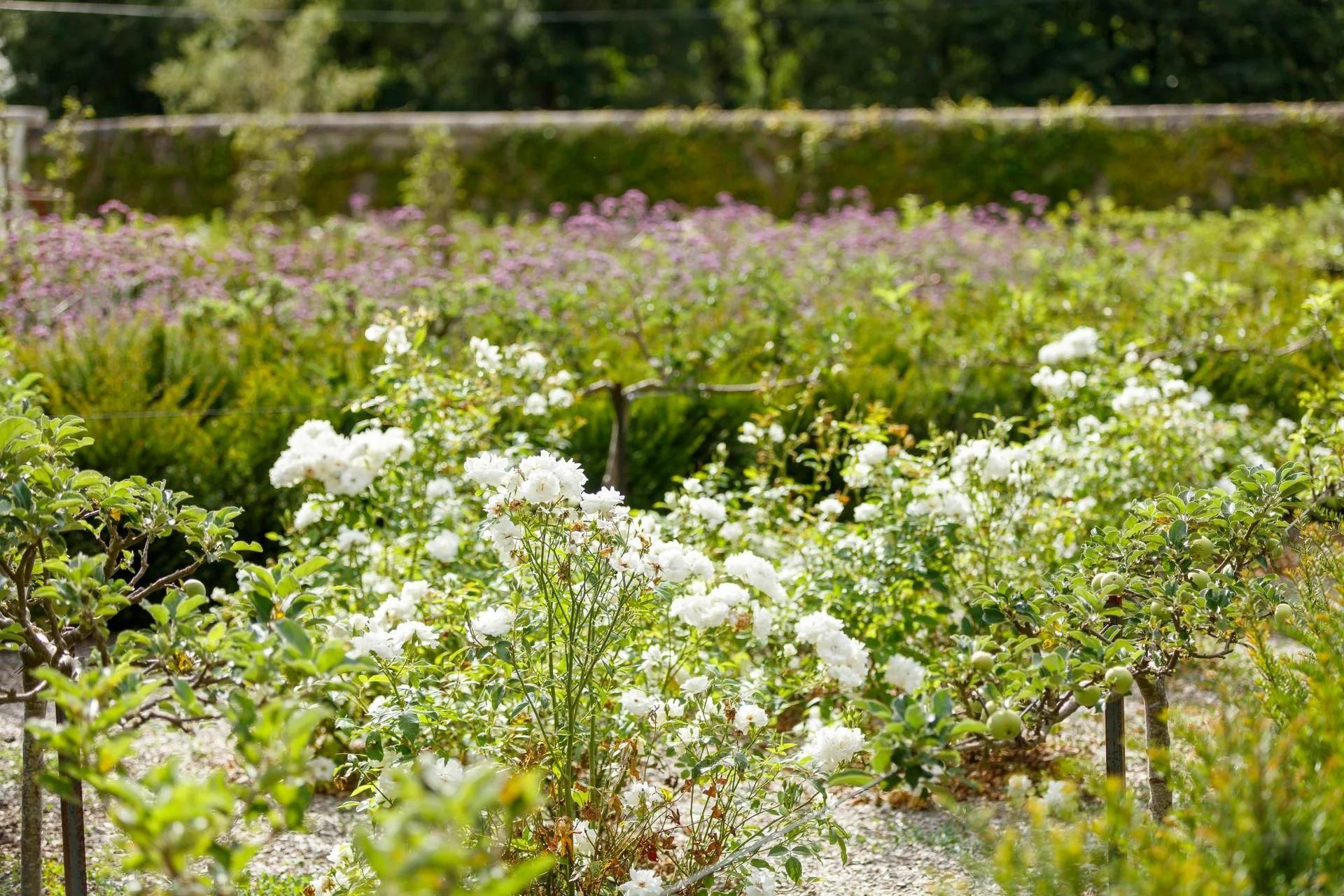
SUSTAINABLE DEVELOPMENT
CHATEAU LOUISE DE LA VALLIÈRE IS DEEPLY COMMITTED TO SUSTAINABLE DEVELOPMENT AND BIODIVERSITY CONSERVATION
The restoration of the La Vallière estate presented significant challenges in terms of sustainability, such as reducing the building's energy footprint and protecting, or even enriching, the biodiversity.
NATURE CONSERVATION: We have established a wildlife sanctuary in collaboration with the LPO (wild animal protection association) within the classified woodland near the château. Hunting has been prohibited there since 2018. As part of our biodiversity observatory, we use a system of visual and sound sensors to identify the mammals and birds present on the site.
ECOSYSTEM ENRICHMENT: We have created an ornamental garden that hosts a wide variety of flowers and vegetables, along with a fig conservatory featuring 11 different species. Birdhouses have been installed on several of our buildings to facilitate bird habitation on the site.ant 11 essences différentes. Des nichoirs ont été installés sur plusieurs de nos bâtiments pour faciliter l'installation des oiseaux sur le site.
REDUCING OUR ENERGY FOOTPRINT: We have carried out insulation work, installed double glazing, and implemented a reversible heat pump system to replace the oil heating. Additionally, all lighting on the estate has been replaced with low-energy LED bulbs. These measures have reduced the estate's energy consumption by 47%.
ECOLOGICAL WASTEWATER TREATMENT: We have opted for a lagooning system, which requires no energy or chemicals. This system promotes the development of an ecosystem where reeds provide habitat and food for a diverse range of wildlife (birds, amphibians, insects), thereby contributing to the increase in local biodiversity.
LOCAL SOURCING: Our procurement policy prioritizes local producers (meat, eggs, vegetables, etc.), respects product seasonality, and ensures rigorous traceability, with a preference for organic certifications.
SUSTAINABLE PRACTICES: By honoring the tableware arts of the past, we promote more environmentally friendly practices. Glass carafes replace plastic bottles, and vintage porcelain plates are favored over modern, less sustainable tableware.




